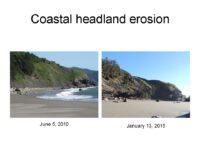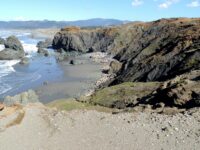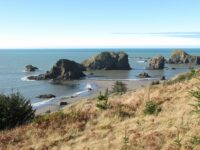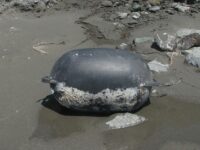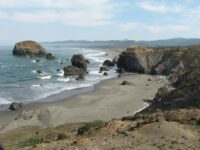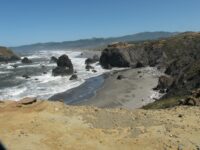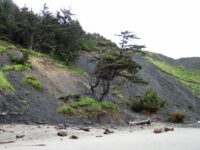Mile 20 Report
Saddle Rock, Crook Point
February 9, 2009
Majority of duff seen in January near the point has been removed leaving two small ridges of duff high on beach and two large six-foot high clumps.
Report Details
Majority of duff seen in January near the point has been removed leaving two small ridges of duff high on beach and two large six-foot high clumps. We would have really wondered what caused these clumps if we hadn't seen the huge wash-up of duff in January! Large patch of accumulated sticks and wood near intertidal area of the point. Light drift on beach with some algae, a few Leather Bryozoa, worm tubes and Hydrozoa. High tides and surf have eroded bluff base in middle of mile and cut into the toe of a landslide. Light drift of duff on the south beach and more sand has been removed, exposing large rocks and stones. Sand removed from North Cove beach. Three Black Oystercatchers, Western Gulls, American Kestril, Black Phoebe, American Pipets, Northern Flicker, Crow and Raven on offshore rocks or headland above beach. 24 Harbor Seals resting on offshore rocks. Wind speed of 4.2 mph from NW. Air and ocean temperature of 64 and 48.4 degrees F, respectively.
Conditions
Temperature: 64 F. Cloud Cover: Cloudy. Wind Velocity: Calm/Light. Wind Direction: NW.
Notable Wildlife
24 Harbor Seal hauled out on off-shore rocks. Western Gulls, and 3 Black Oystercatchers on off-shore rocks and flying over the ocean. American Kestrel, Black Phoebe, Northern Flicker, Crow and Raven on headland above the beach. American Pipets working the sandy/duff area next to the headland.
Driftline Content
See General Comment
Man-made Modifications
Sand removal. See General Comment.
Natural Changes
See General Comment.
Actions & Comments
Driftline Content: Light driftline of duff. Large number of small sticks accumulated among rocks near intertidal area below the Point. A few Leather Bryozoa (Flustrellidra spinifera), worm tubes, Hydrozoa and some algae: Lessoniopsis (Strap Kelp), Ahnfeltiopsis (Flat-tipped Forked Seaweed), Constantinea (Cup and Saucer Seaweed),Mazzaella (Iridescent Seaweed), Saccharina (Sea Cabbage),Rhodymenia (Pacific Rose Seaweed),Pterygophora (Old Growth Kelp), Plocamium cartilagineum (Sea Braid),Callophyllis (Beautiful Leaf Seaweed). We were very surprised to see how little duff remained from last months huge washup. There is only two six foot high clumps and two low ridges high on the beach. Today and recent high tides and surf have eroded the bluff base in the middle of the mile. The toe of the large bluff landslide about 1/3 of mile south of the point has been eroded. The ocean has been removing sand on the south beach, exposing more large rocks and boulders. Sand also has been removed from the North Cove beach.
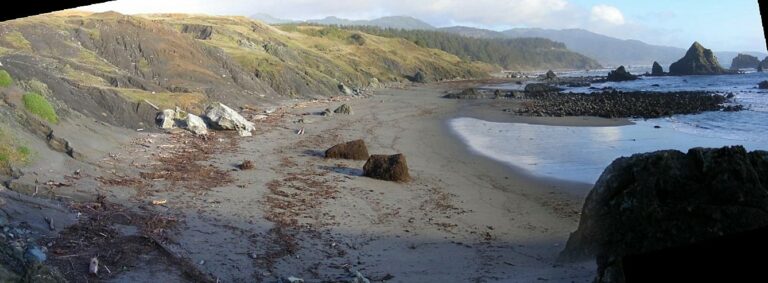
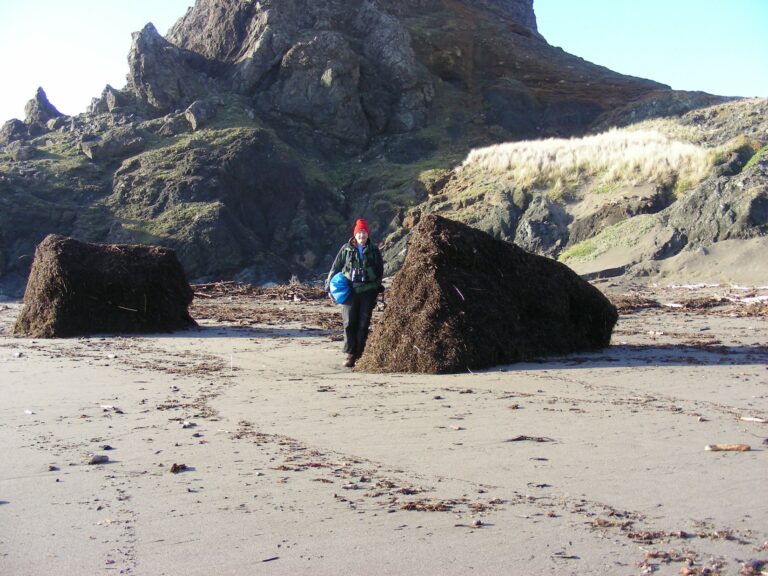
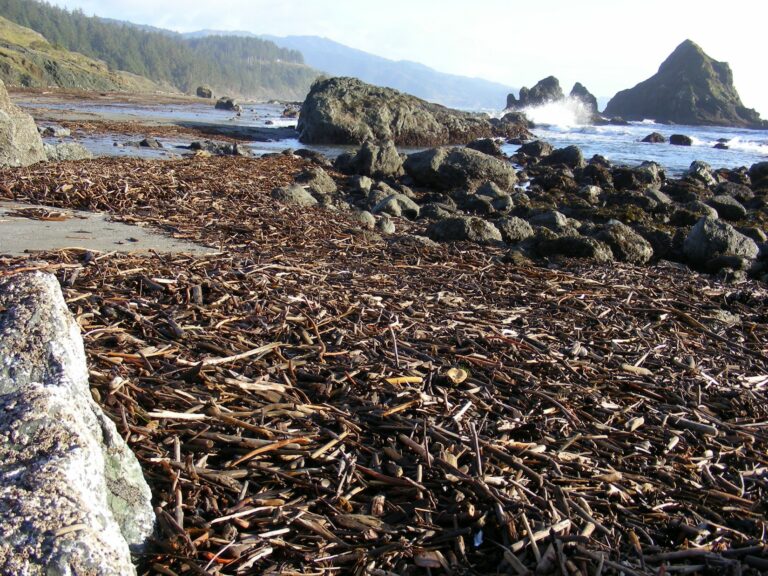

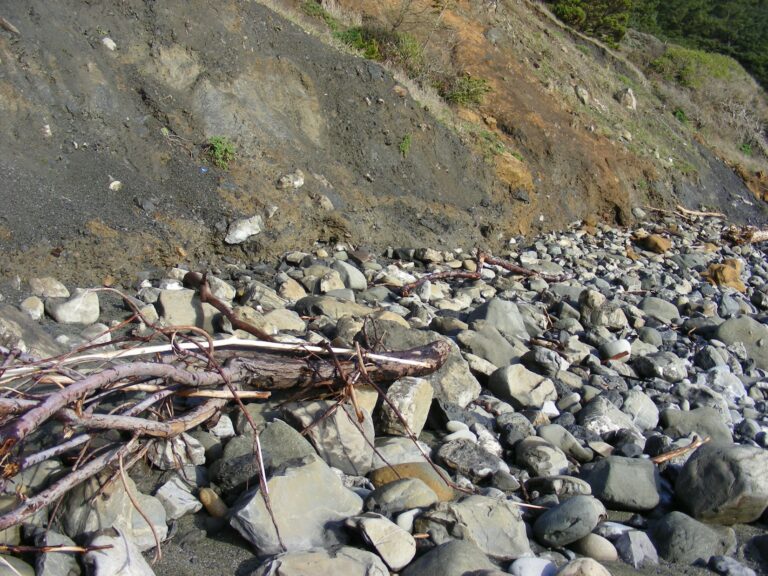

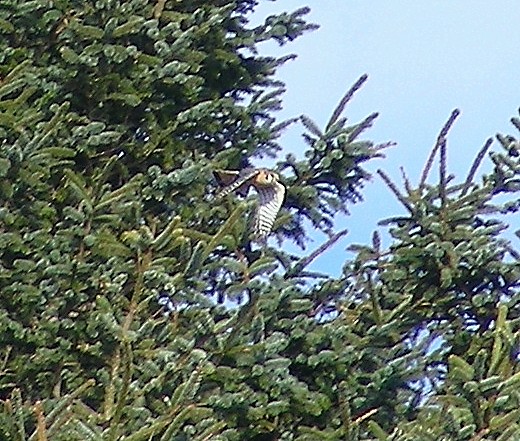
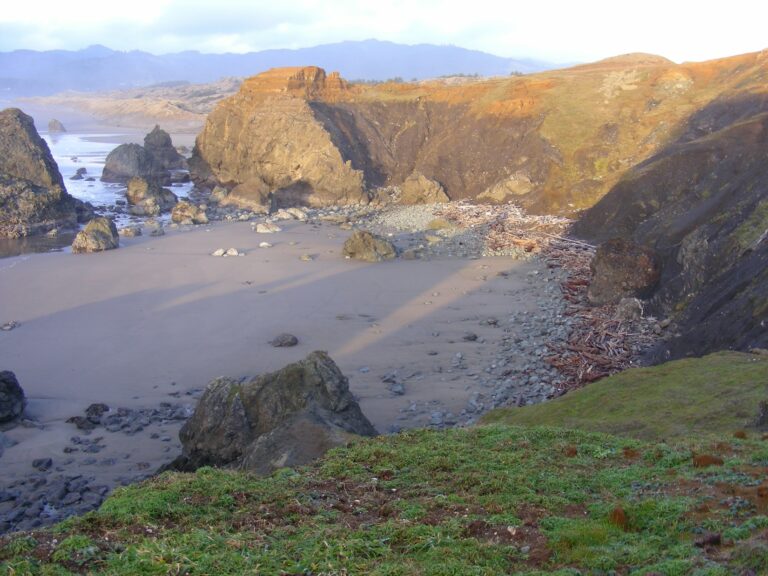
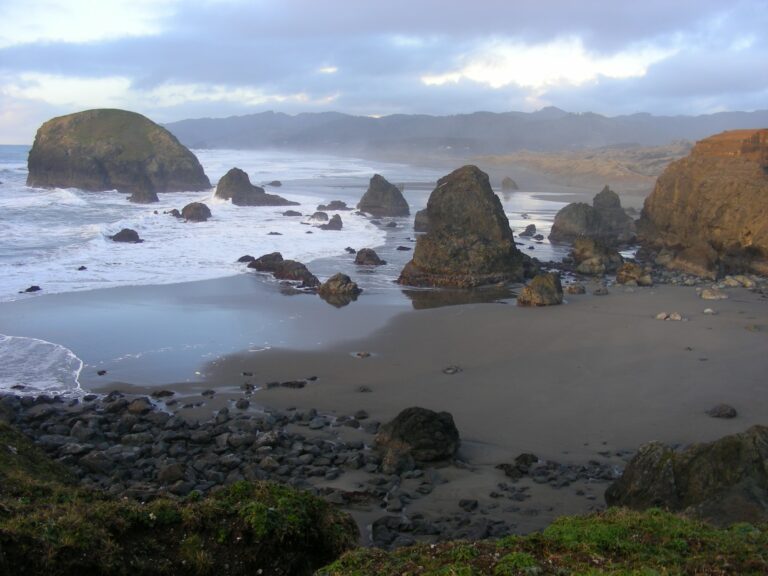
Report Images
All Mile 20 Reports
Mile 20
Saddle Rock, Crook Point
One person and two dogs were seen on the beach.
D Bilderback
Mile 20
Saddle Rock, Crook Point
Except for one small heavy patch of drift, the driftline was sparse with kelp/algae, Leather Bryozoa and crab carapaces.
D Bilderback
Mile 20
Saddle Rock, Crook Point
The driftline was absent except for two localized areas with terrestrial-derived leaves, mosses, wood pieces, some shredded blades of Pterygophora(Old Growth Kelp) and a few invertebrates and other algae and kelp.
D Bilderback
Mile 20
Saddle Rock, Crook Point
Peregrine Falcon resting on south end of Saddle Rock.
D Bilderback
Mile 20
Saddle Rock, Crook Point
Light driftline with 12 different genera of kelp and algae, terrestrial mosses, Leather Bryozoa (Flustrellidra corniculata), the flowering plant, Phyllospadix (Seagrass) and small rocks.
D Bilderback
Mile 20
Saddle Rock, Crook Point
Three boats seen drifting very close to offshore rocks.
D Bilderback
Mile 20
Saddle Rock, Crook Point
The south beach lacked driftline and sand has accumulated around the drift logs and over the large rocks at the base of the headland.
D Bilderback
Mile 20
Saddle Rock, Crook Point
The driftline was light on the southern and northern portions of the beach but heavy on the middle portion of the beach with large amounts of kelp/algae and forest duff.
D Bilderback

